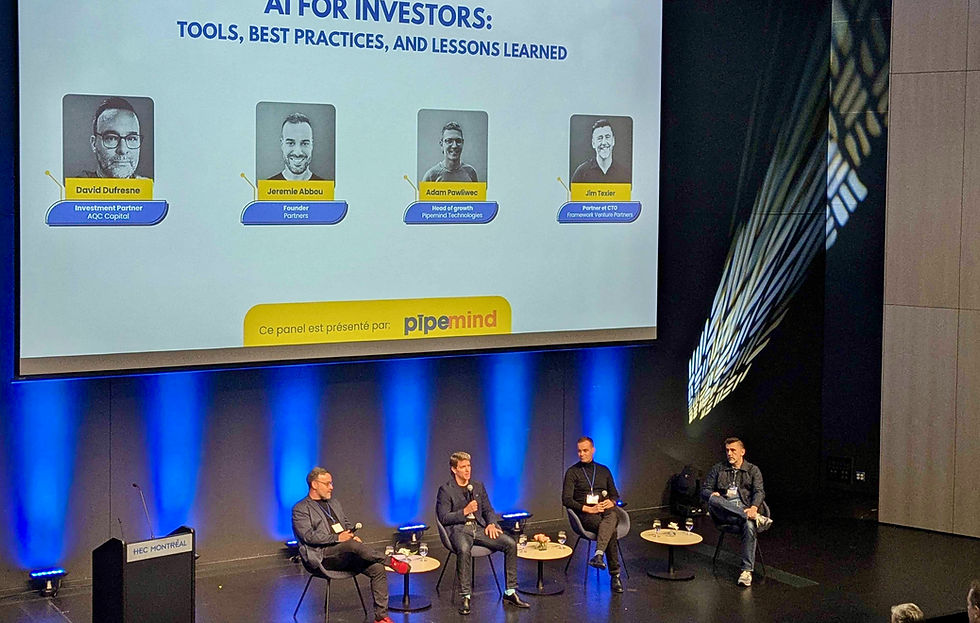The Evolution of AI Agents – Transforming Business Productivity and Jobs
- Adam Pawliwec

- Sep 24, 2024
- 2 min read
Artificial Intelligence (AI) continues to evolve at a rapid pace, with AI agents now stepping into the limelight. These agents are redefining the expectations we once had for AI technologies like chatbots and automated GenAI tools. Companies such as OpenAI, Salesforce, Microsoft, and Google have all begun to pivot towards AI agents, expanding their capabilities beyond simple conversation and task automation. But what exactly sets AI agents apart from traditional generative AI models (GenAI), and what does the future hold for this technology?
What are AI Agents?

In recent years, GenAI models, including large language models (LLMs) like OpenAI’s GPT-4, have been the face of innovation. These systems are excellent at generating text, answering questions, and engaging in human-like conversations. They’re trained on vast datasets and designed to mimic human language patterns. However, their core function has largely been to provide information and assist with basic, non-specialized tasks.
With the rise of AI agents, however, we are seeing a significant shift. Unlike their predecessors, AI agents are designed to interact with not just humans, but also other software systems, making them capable of completing more complex tasks. They can operate within various business environments and adapt in real time to dynamic workflows.
For example, Microsoft’s Copilot integrates seamlessly with the entire Microsoft 365 suite, including Excel, PowerPoint, and OneNote, offering automation and task completion. Similarly, Google’s Gemini is built to work across Google Workspace services like Docs, Sheets, and Gmail. These AI agents understand context, perform real-time updates, and even suggest improvements—marking a significant leap from the chatbots of the past.
Business KPIs: AI Agents Driving Measurable Success
Deploying AI agents can transform a business’s key performance indicators (KPIs), driving efficiency and productivity:
Time to Resolution: AI agents process customer queries, automate responses, and handle repetitive tasks faster than human employees, leading to faster resolution times.
Cost Savings: Automating tasks through AI agents reduces operational costs, as seen in Salesforce’s successful integration of AI into sales and customer service workflows.
Productivity Gains: With tools like Copilot and Gemini, employees can focus on high-value tasks while AI agents handle routine data work. Microsoft reported that employees using Copilot in Excel completed data analysis tasks 2-3 times faster.
Customer Satisfaction: AI agents can anticipate customer needs, personalize responses, and improve satisfaction. They can even upsell products based on customer interaction history.
For more on how Pipemind can help your business leverage AI agents to improve KPIs, visit our AI Consulting Services.
The Future of Jobs in the AI Era
AI agents will undoubtedly impact jobs, and the extent of this impact is still under debate. Initially, the concern was that AI would replace blue-collar jobs, but sentiment is shifting. Now, white-collar roles like law, finance, and even creative industries are also at risk of automation.
However, AI may not just replace jobs—it could enhance productivity. Some optimists predict that AI’s impact could even lead to shorter workweeks, possibly shrinking from five days to three, as productivity increases, much like what happened during the Industrial Revolution.
If you want to learn more about how AI agents are reshaping the workplace, read our blog on AI: Enhancing or Replacing Jobs?.




Comments